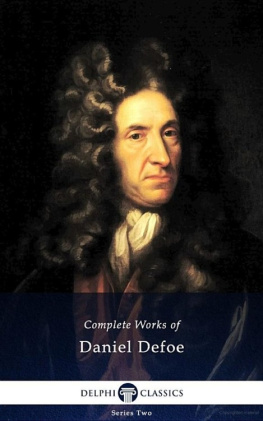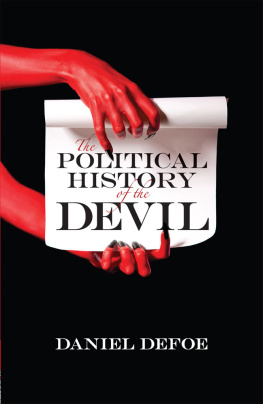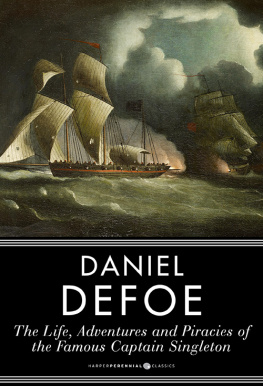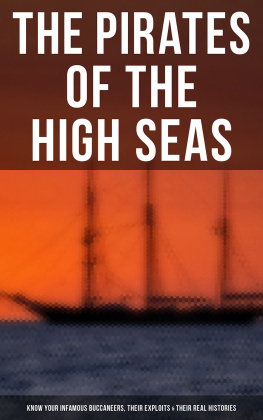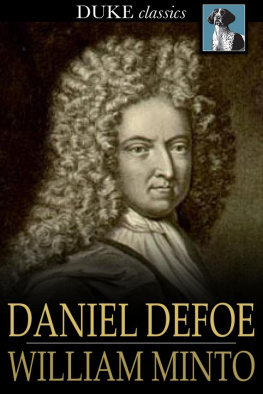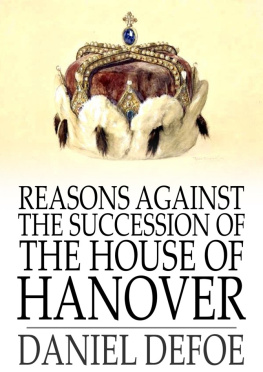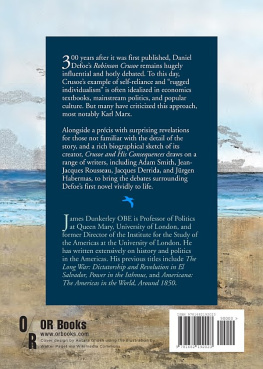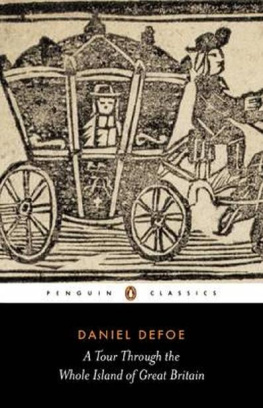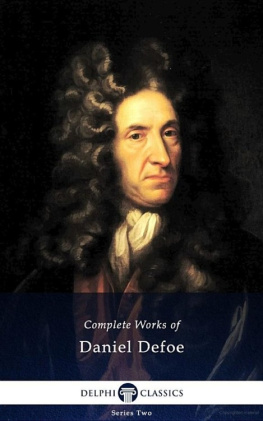John J. Perry
Publication Number 198
WILLIAM ANDREWS CLARK MEMORIAL LIBRARY
University of California, Los Angeles 1979
GENERAL EDITOR
David Stuart Rodes, University of California, Los Angeles
EDITORS
Charles L. Batten, University of California, Los Angeles
George Robert Guffey, University of California, Los Angeles
Maximillian E. Novak, University of California, Los Angeles
Thomas Wright, William Andrews Clark Memorial Library
ADVISORY EDITORS
Ralph Cohen, University of Virginia
William E. Conway, William Andrews Clark Memorial Library
Vinton A. Dearing, University of California, Los Angeles
Arthur Friedman, University of Chicago
Louis A. Landa, Princeton University
Earl Miner, Princeton University
Samuel H. Monk, University of Minnesota
James Sutherland, University College, London
Robert Vosper, William Andrews Clark Memorial Library
CORRESPONDING SECRETARY
Beverly J. Onley, William Andrews Clark Memorial Library
EDITORIAL ASSISTANT
Frances M. Reed, University of California, Los Angeles
INTRODUCTION
Atalantis Major is a thinly veiled allegory describing the November 1710 election of the representative Scottish peers. The circumstances which surrounded this election were produced by the outcome of the previous month's General Electiona landslide for the Toriesand, to understand these circumstances, the impact of that Tory victory must be seen within the context of the political events of 1710.
By early in 1710 it had become obvious that the Whig Ministry of Sidney Godolphin was unable or unwilling to negotiate an end to the long, expensive, and consequently, unpopular war with France. The quarrel between Queen Anne and her confidante, the Duchess of Marlborough, smouldered until, on 6 April 1710, the breach between them became final. The Queen's confidence in the Duke of Marlborough began to erode as early as May 1709 when he sought to be appointed "Captain-General for Life." Godolphin's decision to impeach the popular Rev. Dr. Henry Sacheverell for preaching "a sermon which reasserted the doctrine of non-resistance to the will of the monarch" was ill-advised, for not only did it give the High-Church Tories a martyr, it also gave the Administration the appearance of being against the Church. In securing the impeachment of Sacheverell on 20 March 1710, the Whigs discovered that they had lost the support and the confidence of both the Parliament and the country.
Dissention within and intrigue from without further hastened the fall of the Administration. Godolphin, a moderate, had, after the General Election of 1708, found himself allied with the "Junto" of five powerful Whig LordsWharton, Sommers, Halifax, Orford, and Sunderlandbut it was, at best, an uneasy alliance. Throughout 1709 and into the early months of 1710, personal jealousies drove the Godolphin-Marlborough interest farther and farther away from the Junto. Robert Harley and the Dukes of Somerset and Shrewsbury, in their determination to overthrow the Administration, exploited every chance to widen the rifts between Anne and her Ministers and between the two ministerial factions. Abigail Hill Masham, who soon became an agent of Harley, replaced the Duchess of Marlborough as Anne's confidante.
When the Ministry fell, it fell like a house of cards. On 14 April 1710 Shrewsbury was made Lord Chamberlain over the unavailing protests of Godolphin. Two months later, at the instigation of Somerset, the Queen replaced Sunderland with the Tory Lord Dartmouth as Secretary of State. Finally, on 8 August, Godolphin was ordered to break the White Staff of his office and Harley was appointed Treasurer. One by one the remaining Junto Ministers were replaced by Tories. By September the work was complete. The Duke of Marlborough alone remained, in command of the army, but this was only to be until the new Ministry could negotiate a peace and his services would no longer be required.
It had been Harley's intention to govern by means of a "moderate" Administration, a "Queen's Ministery above party," but he had not reckoned on the outcome of the General Election called in October. "On the day Godolphin fell, Harley expounded his 'moderate' programme in a letter to the Duke of Newcastle: 'The Queen is assured you will approve her proceedings, which are directed to the sole aim of making an honourable and safe peace, securing her allies, reserving the liberty and property of the subject, and the indulgence to Dissenters in particular, and to perpetuate this by really securing the succession of the House of Hanover.'"
Alone, either the antagonism to the war or the intensity of feeling for the High-Church cause which the Sacheverell affair engendered, would have been sufficient to sweep the Whigs from power. Together, and combined as they were with the prestige of the Queen's public support of Harley and the newly appointed Tory Ministers, these issues were irresistible. Harley found himself with an "immoderate" House of Commons. The Tories held 320 seats, the Whigs only 150, and there were 40 seats whose votes were "doubtful." Many of the new Parliamentarians were High-Church zealots, and most were anxious to turn the nation away from the policies of the Whig Administration of Godolphin.
The House of Lords, however, remained a bastion of Whig strength. As an hereditary body the House of Lords was simply not subject to the same opportunity for change as the elected House of Commons. Consequently, in 1710, as a result of the Glorious Revolution, the long reign of William III, and the Godolphin Ministry, the majority of the members of the House of Lords were of Whig or Revolution Settlement policies. Therein lay Harley's problem in late October of 1710: to obtain a Lords to match the Commons he had been given.
Any early eighteenth-century MinistryWhig or Torycould count on having the support of those peers whose poverty made them dependent on governmental subsidies, but this number would not have given Harley even a bare majority in the strongly Whig House of Lords. And there Harley needed at least enough strength to ensure success for some of the measures designed to satisfy the demands of the newly Tory House of Commons, particularly if his Ministry was to be able to negotiate a satisfactory treaty of peace with France.
To obtain a Tory majority in the House of Lords commensurate with the one in Commons, Harley could have seen to the creation of a sufficient number of new peerages; but this would have alienated too many factions and the recently completed Union with Scotland (1707) offered what appeared to be a far simpler expedient. The Act of Union provided for the election of sixteen Scottish peers who would represent all of the Scottish nobility in the House of Lords. If he could ensure that all sixteen of these peers were Tory, Harley would be certain of a large block of loyal votes in the upper house, or, at worst, he would have to arrange for the creation of only a few new peers to neutralize the Whigs' strength. To John Campbell, the second Duke of Argyll, Harley assigned the task of orchestrating a Tory sweep in this election.
The Duke of Argyll sat in the House of Lords as the Earl of Greenwich (an English title), not as one of the elected peers, and, as such, he was not elegible to stand as a candidate or to vote in this election. Argyll had supported the Whig Junto and held the rank of Lieutenant General under Marlborough in France, but in 1710 (seeing the direction the political tide was taking) he abandoned his support of Godolphin's Ministry. So that, "by the time the [Sacheverell] Trial was finished, it was known that the great chief of the Campbells and of the Scottish Whigs had gone into opposition to the Government [of Godolphin] in league with Harley, although he voted for the Doctor's condemnation...."




